How to Overcome Challenges in Implementing AI in Supply Chain?
This blog endeavors to delve into these challenges, offering insights into AI services and strategies to address them effectively. Businesses can fully utilize AI in supply chain management by overcoming these obstacles and streamlining workflows to increase productivity and competitiveness.
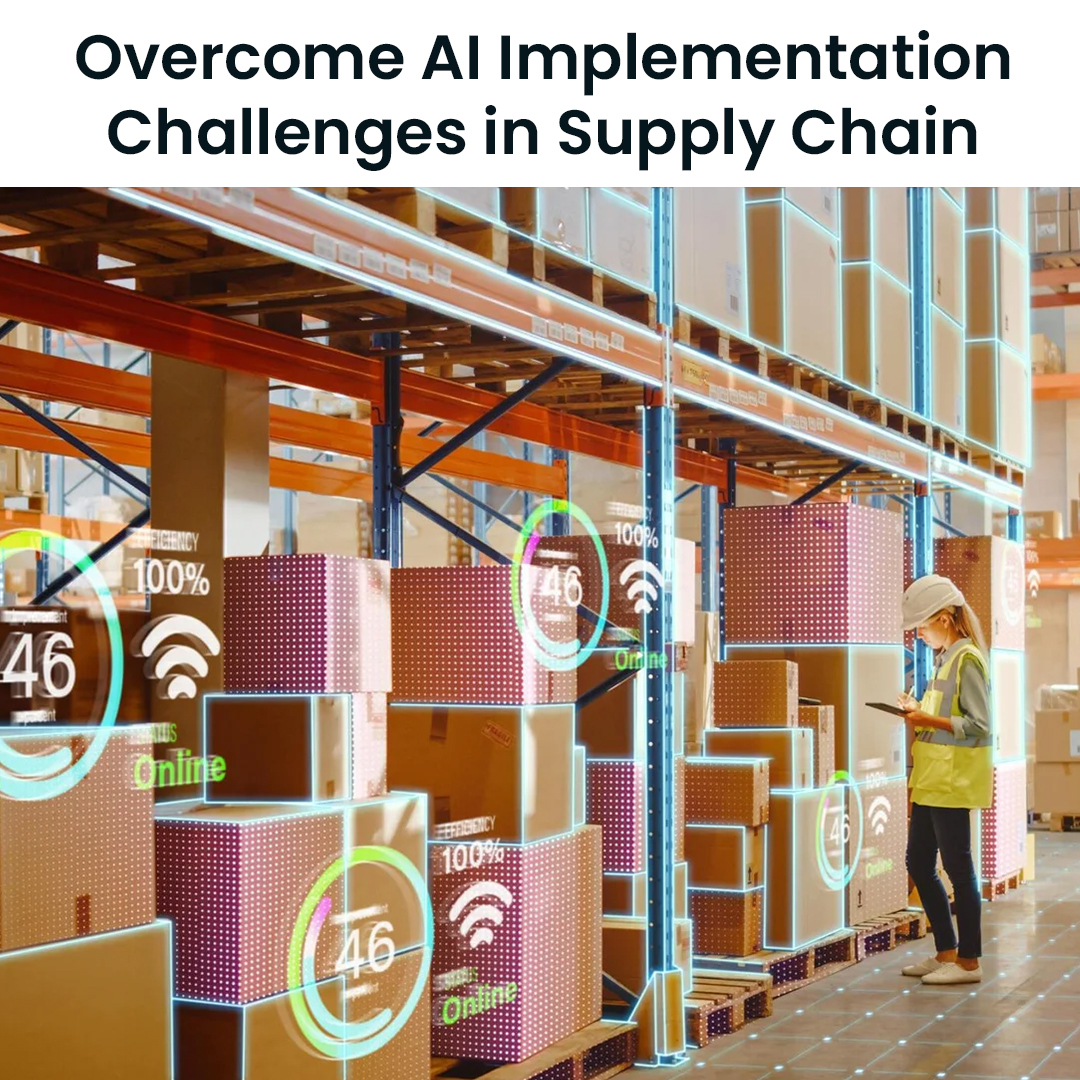
Transform Your Supply Chain with AI-driven Solutions. Optimize Inventory and Mitigate Disruptions for Seamless Operations
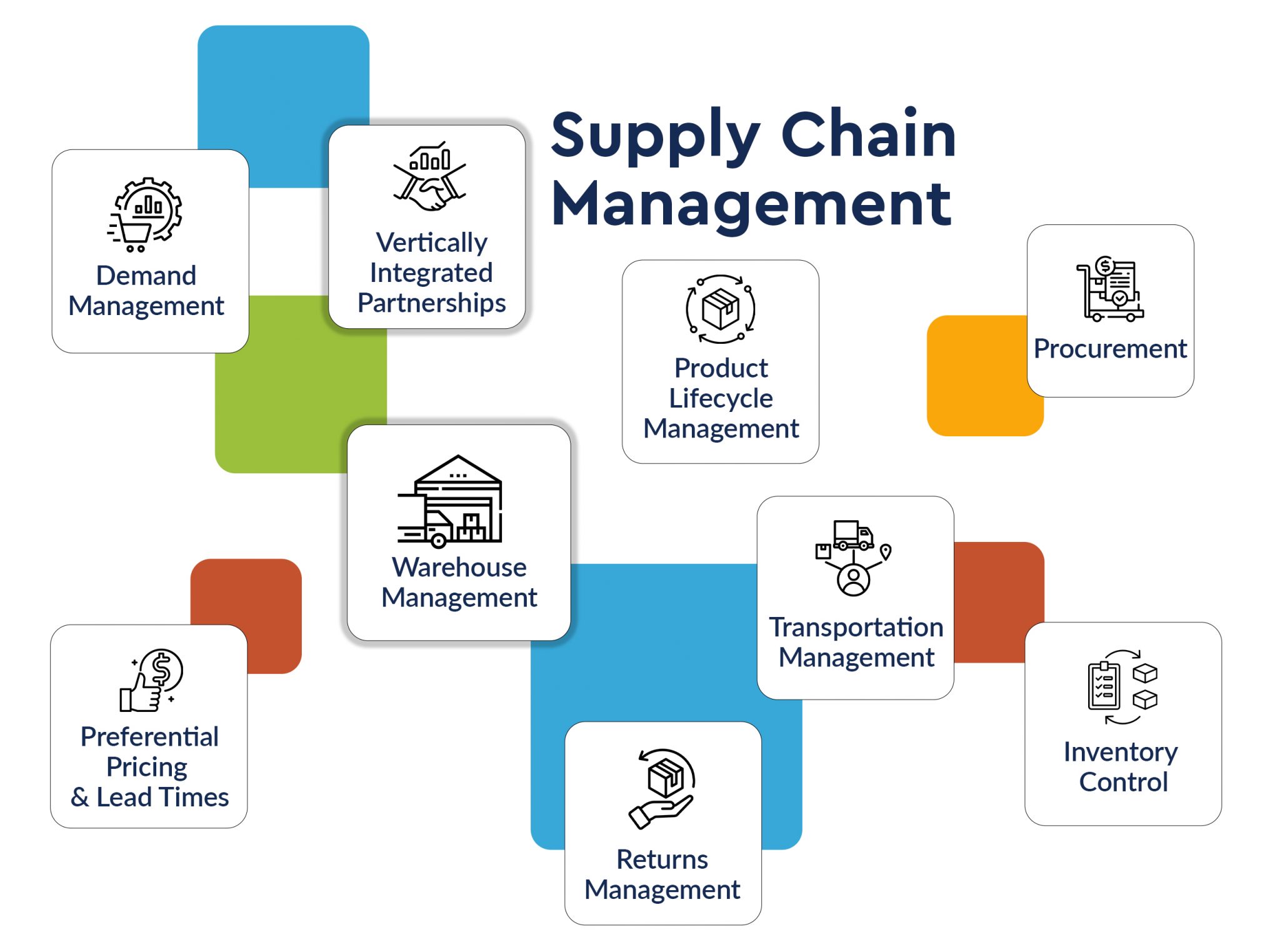
“AI’s ability to analyze huge volumes of data, understand relationships, provide visibility into operations, and support better decision-making makes AI a potential game changer. Getting the most out of these solutions is not simply a matter of technology, however; companies must take organizational steps to capture the full value from AI.”– Mckinsey
Overview of AI Implementation
Implementing AI in supply chain and logistics entails integrating AI capabilities and technologies into business applications and procedures. ML algorithms are what AI systems use to complete tasks with the least amount of human intervention. Automating monotonous or repetitive operations, deriving conclusions from data, enhancing productivity, and guiding business choices are a few examples. After a use case has been determined, information is gathered to test and train machine learning algorithms. The problem that needs to be solved determines the volume and type of data needed.
During implementation, human aspects such as workforce retraining, organizational structure adaptation, and position changes must be considered. Upskilling workers might be necessary for them to operate AI-driven processes. Implementing AI requires careful testing and assessment. In addition to being accurately optimized for necessary activities, the system needs to adhere to moral, equitable, and transparent norms. To attain the intended performance, adjustments and enhancements are made in response to test results.
An AI software development service company’s experience will be necessary to make these changes. After testing, the AI system is used and integrated with current systems. Over time, problems and opportunities for improvement can be found by tracking performance in real-world applications.
Implementation Challenges of AI in Supply Chain
AI in supply chain presents immense opportunities for companies. While machine learning, data analysis, and predictive analytics offer undeniable benefits, challenges persist. Addressing these challenges is crucial for maximizing the potential of AI in optimizing supply chain operations. Common challenges include:
- Legal & Regulatory Considerations: Businesses implementing AI must comply with data protection laws like CCPA and GDPR. Explaining liability for AI decisions is complex. Unclear regulations on AI use create uncertainty for businesses, necessitating careful navigation of legal and ethical considerations.
- Lack of Clear Transformation Strategy: The implementation of AI in supply chain requires a clearly defined strategy. Lack of a defined strategy can cause businesses to veer off course, resulting in activities that are not in line with the main goals of the company, wasting resources, and lacking direction. To integrate AI into supply chain operations successfully, a plan and vision that complements the organization’s overarching objectives must be developed.
- Data Quality & Integration: Businesses that have data silos, or departments with fragmented data, confront challenges when implementing AI in the supply chain since it makes it more difficult to acquire and integrate the data needed to create AI models. For actual AI capability, data completeness and accuracy are essential. Proper data quality can result in precise forecasts and efficient decision-making. Data security and privacy must be carefully considered while implementing AI.
- Legacy Systems & Static Infrastructure: Outdated technology hinders AI integration in supply chain management, causing inefficiencies. Upgrading is complex and costly, demanding considerable time, energy, and financial resources. Key challenges include integrating AI with existing systems, enhancing flexibility, and managing data effectively to meet evolving market demands.
How to Overcome Challenges in Implementing AI in the Supply Chain?
AI can be used to solve supply chain problems if you have the proper tools for tracking real-time data. Tracking in the supply chain is made possible by sensors, IoT devices, and passive radio frequency identification (RFID) tags, which collect data in real-time for analysis. AI can be powered by APIs, which can assist in overcoming the complexity of current supply chain systems. Through APIs, data may be shared and communicated between disparate systems to ensure scalability and compatibility.
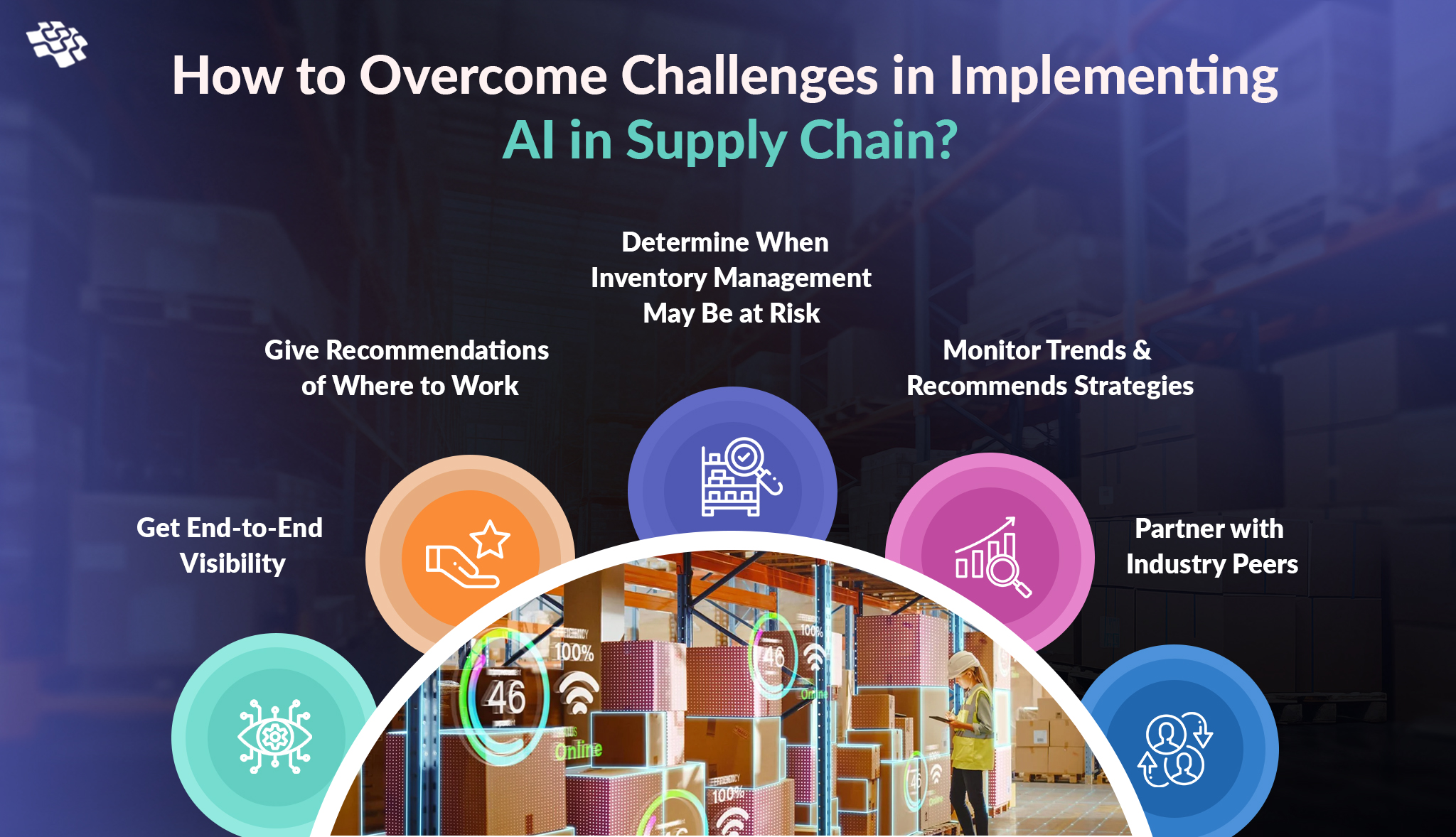 1. Get End-to-End Visibility
1. Get End-to-End Visibility
For efficient supply chain management, businesses require complete visibility across processes, from raw material procurement to customer delivery. Achieving this entails tracking and monitoring the entire supply chain through data logging. Analysis of this data empowers precise process control. In fact, according to a study by Deloitte, 79% of businesses consider end-to-end visibility critical for supply chain success. By leveraging data insights, companies can proactively identify bottlenecks, optimize workflows, and enhance overall efficiency. This enables timely decision-making and ensures seamless coordination between suppliers, manufacturers, and distributors.
Furthermore, effective process control minimizes inventory holding costs, reduces lead times, and enhances customer satisfaction. With real-time visibility and data-driven insights, businesses can adapt swiftly to dynamic market conditions and maintain a competitive edge in the industry. Thus, investing in end-to-end visibility through data logging facilitates agile and responsive supply chain operations.
2. Give Recommendations of Where to Work
Data and AI enable targeted improvement efforts in the supply chain by pinpointing areas for optimization. Through data analysis, businesses can identify bottlenecks and suggest solutions to enhance throughput. AI, utilizing simulation modeling, explores diverse scenarios to uncover root causes and propose remedies. Leveraging baseline data, AI predicts the impact of process alterations, offering efficiency-enhancing solutions. With adequate data, AI evaluates numerous potential changes to advise on optimal strategies. As per McKinsey, companies leveraging AI in supply chain management experience a 10-20% reduction in costs and a 10-15% increase in service levels. This highlights the transformative potential of AI in driving efficiency and effectiveness across supply chain operations.
By harnessing AI’s analytical capabilities, businesses can optimize processes, mitigate risks, and achieve competitive advantage in today’s dynamic market landscape.
3. Determine When Inventory Management May Be at Risk
Supply chain executives employ advanced AI tools to analyze extensive data sets and respond to dynamic environmental factors. These tools monitor diverse variables including weather patterns, labor disruptions, governmental policies, and geopolitical tensions to evaluate potential risks to the supply chain. Through the utilization of historical data, external sources, and emerging trends, AI optimizes inventory management by maintaining ideal stock levels and accurately forecasting demand. It dynamically adjusts inventory levels as required, mitigating the risks of both stockouts and excess inventory.
Moreover, AI plays a pivotal role in container management by preemptively identifying challenges such as limited shipping space for finished goods or delays in returning containers to suppliers. By proactively addressing these issues, AI contributes to enhancing efficiency and resilience within supply chain operations. This integration of AI technologies not only streamlines processes but also empowers supply chain stakeholders to make informed decisions in navigating complex and ever-changing logistical landscapes.
4. Monitor Trends & Recommends Strategies
AI excels in uncovering trends unnoticed by humans and pinpointing causality among data points. It highlights how even minor irregularities impact the entire supply chain by correlating cause and effect. By analyzing historical patterns, AI identifies seasonal trends affecting the timely procurement of raw materials from specific vendors. Algorithms extrapolate these delays’ effects on production schedules, manpower, machine capacity, warehousing, and product delivery.
To mitigate damages, AI suggests supplier changes during peak periods or adjustments to production schedules. It proves invaluable in logistics, optimizing intermodal shipment routes to counter escalating freight costs. Tracking inbound and outbound shipments generates extensive data, enabling AI to analyze transportation patterns and enhance visibility into trailer contents. Through proactive analysis and optimization, AI enhances supply chain efficiency and resilience, empowering businesses to navigate logistical complexities with precision.
5. Partner with Industry Peers
Relying solely on Excel spreadsheets for supply chain management is no longer sufficient given the intricate nature of contemporary logistics. To ensure the smooth functioning of operations, continual and active collaboration with suppliers, manufacturers, financiers, regulators, and logistics teams is imperative. This ongoing cooperation necessitates efficient communication channels and tools that can seamlessly facilitate information exchange and decision-making processes. Modern software solutions play a pivotal role in addressing these challenges by offering automated permission systems, timely notifications, comprehensive and data-rich dashboards, and real-time updates. These features not only simplify the implementation of collaborative processes but also enhance transparency and accountability across the supply chain.
By leveraging these software tools, organizations can optimize their supply chain operations, identify potential bottlenecks or risks proactively, and respond swiftly to changes in demand or market conditions. This fosters agility, resilience, and competitiveness in today’s dynamic business landscape.
Future of AI in Supply Chain
AI in supply chain holds immense potential to revolutionize every aspect of it, from forecasting to fulfillment. Envision personalized deliveries tailored to individual customer preferences, predictive models preempting disruptions, and AI-driven robots streamlining repetitive tasks. This future presents abundant opportunities for sustainability, efficiency, and customer satisfaction. However, several obstacles must be addressed to fully harness AI’s benefits. Ensuring data security, resolving ethical dilemmas, and responsibly developing and deploying AI are paramount concerns. Collaboration among businesses and investments in training are essential to unlock AI’s full potential. Fortunately, the increasing affordability of AI technology enables even small firms to leverage its capabilities.
The future of the supply chain hinges on cooperation, data-driven decision-making, and a sustainability-driven mindset. By embracing AI and tackling its challenges head-on, we can forge an efficient, ethical, and sustainable supply chain ecosystem.
Trends of Modern Technology in Supply Chain
Supply chain disruptions have become impossible to ignore, especially with the significant shifts triggered by events like COVID-19. The industry is swiftly moving towards complete global digitalization, driven by technologies such as artificial intelligence, the Internet of Things, Gen AI, automation, and cloud computing. According to Gartner’s research on “Supply Chain Digital Transformation,” over 75% of commercial supply chain management suppliers will offer artificial intelligence and data science solutions by 2026. Additionally, by 2025, 25% of supply chain decisions will be made through an intelligent edge ecosystem. These trends signify just the beginning of a profound transformation in the industry.
NextGen Invent specializes in supply chain software development services, harnessing AI, Generative AI, and automation. We offer tailored solutions to optimize operations, enhance efficiency, and mitigate risks. Our use cases include predictive maintenance, ensuring machinery operates at peak performance, and real-time inventory tracking, facilitating proactive decision-making.
Contact us to embark on your supply chain transformation journey and stay ahead in the dynamic global supply chain sector. With our expertise, we empower businesses to adapt to evolving demands and drive innovation in supply chain management.
Related Blogs
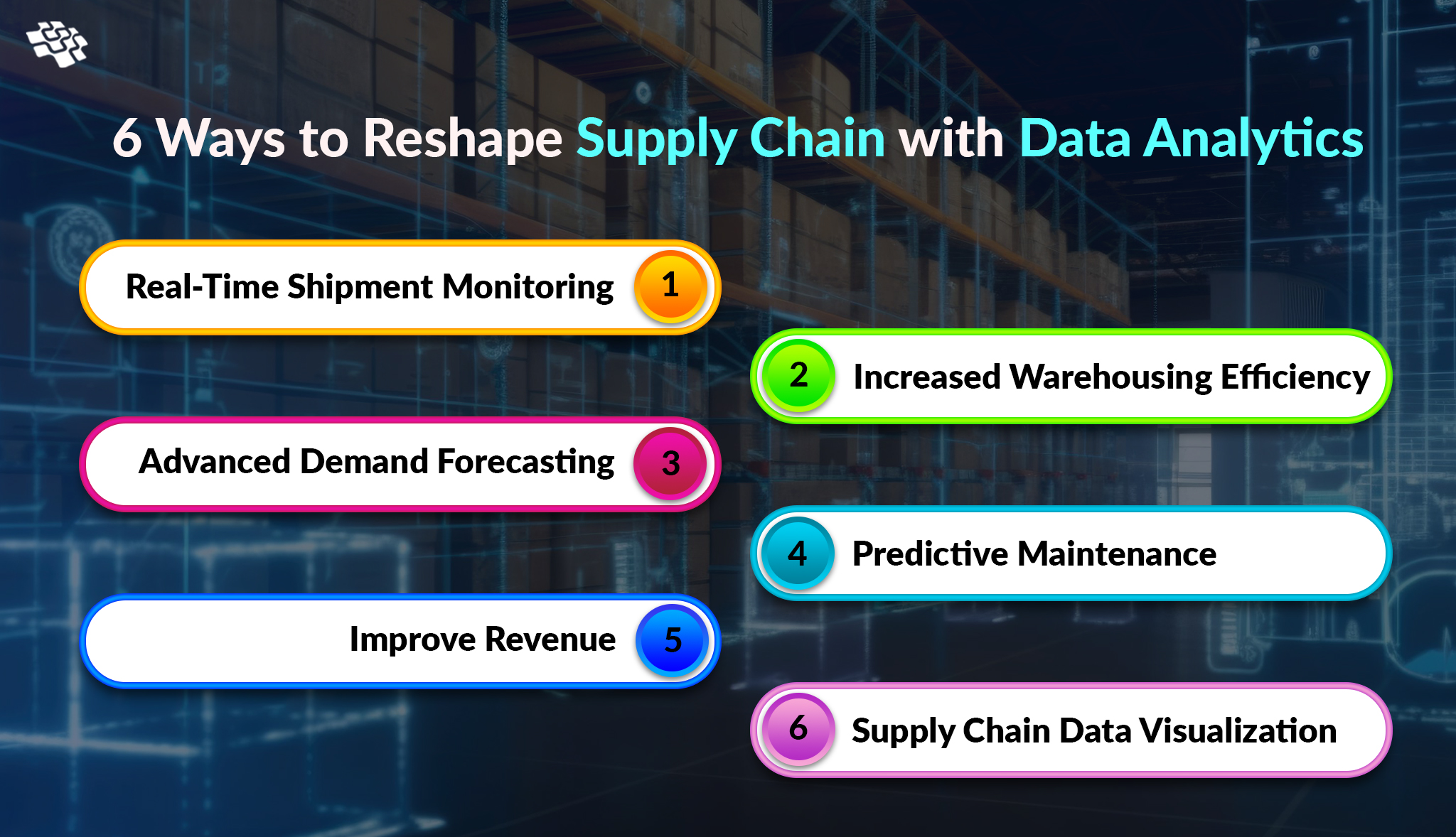
How Do Businesses Optimize Supply Chain with Data Analytics?
In the modern ecosystem, efficient supply chains are critical for business success. Surprisingly, only 27% of companies utilize technology to enhance their supply chain operations. The inquiries from businesses are as follows: How to optimize labor costs? How to determine the best ways to distribute and warehouse inventory?
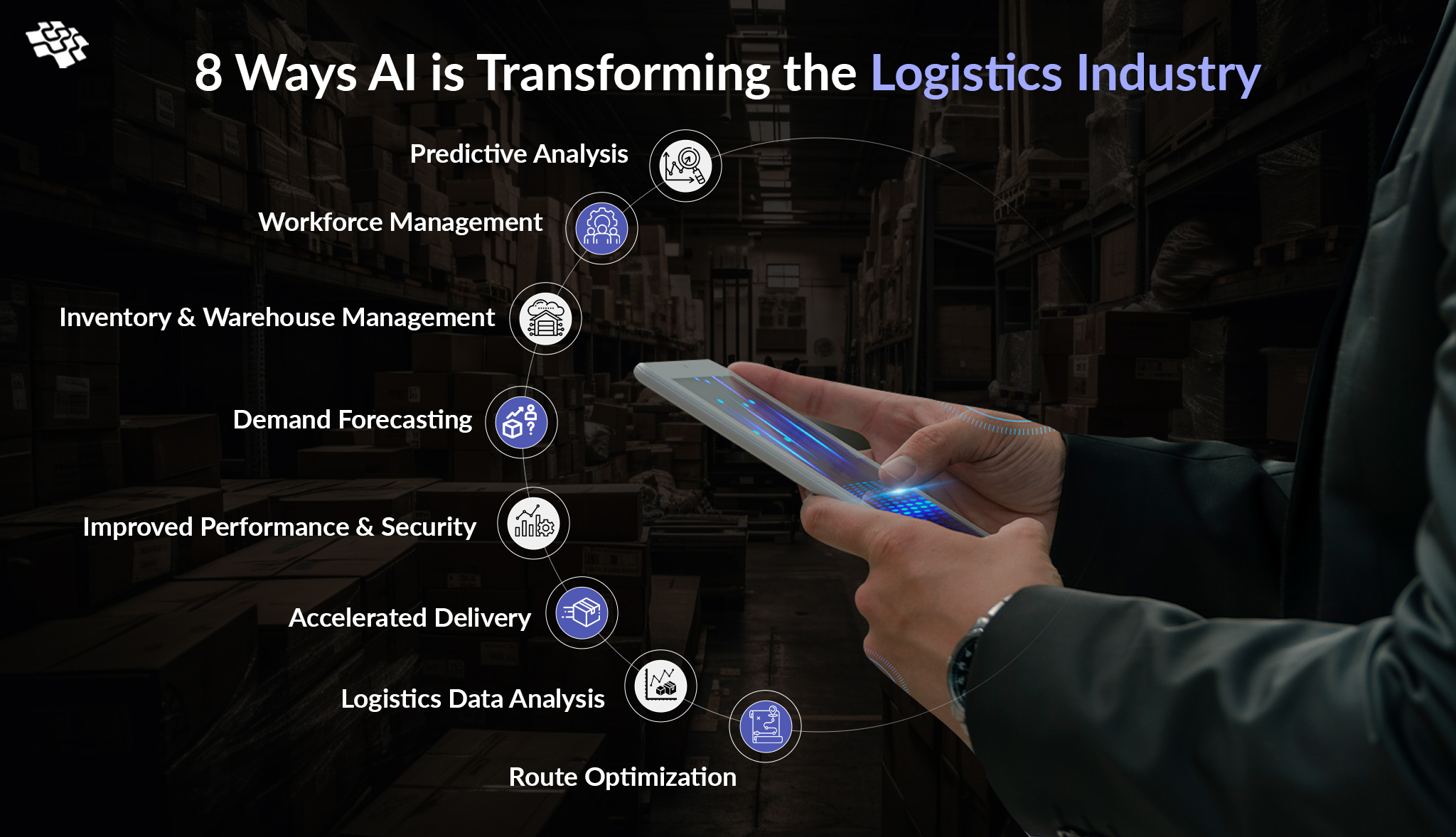
Top 8 Ways AI Is Transforming Logistics & Supply Chain Industry
AI in logistics plays a significant role by assisting executives in the consumer products industry in making decisions more quickly, precisely, and efficiently. This is made possible by its capacity to collect enormous, diverse data sets and then instantly evaluate the information to deliver insights.
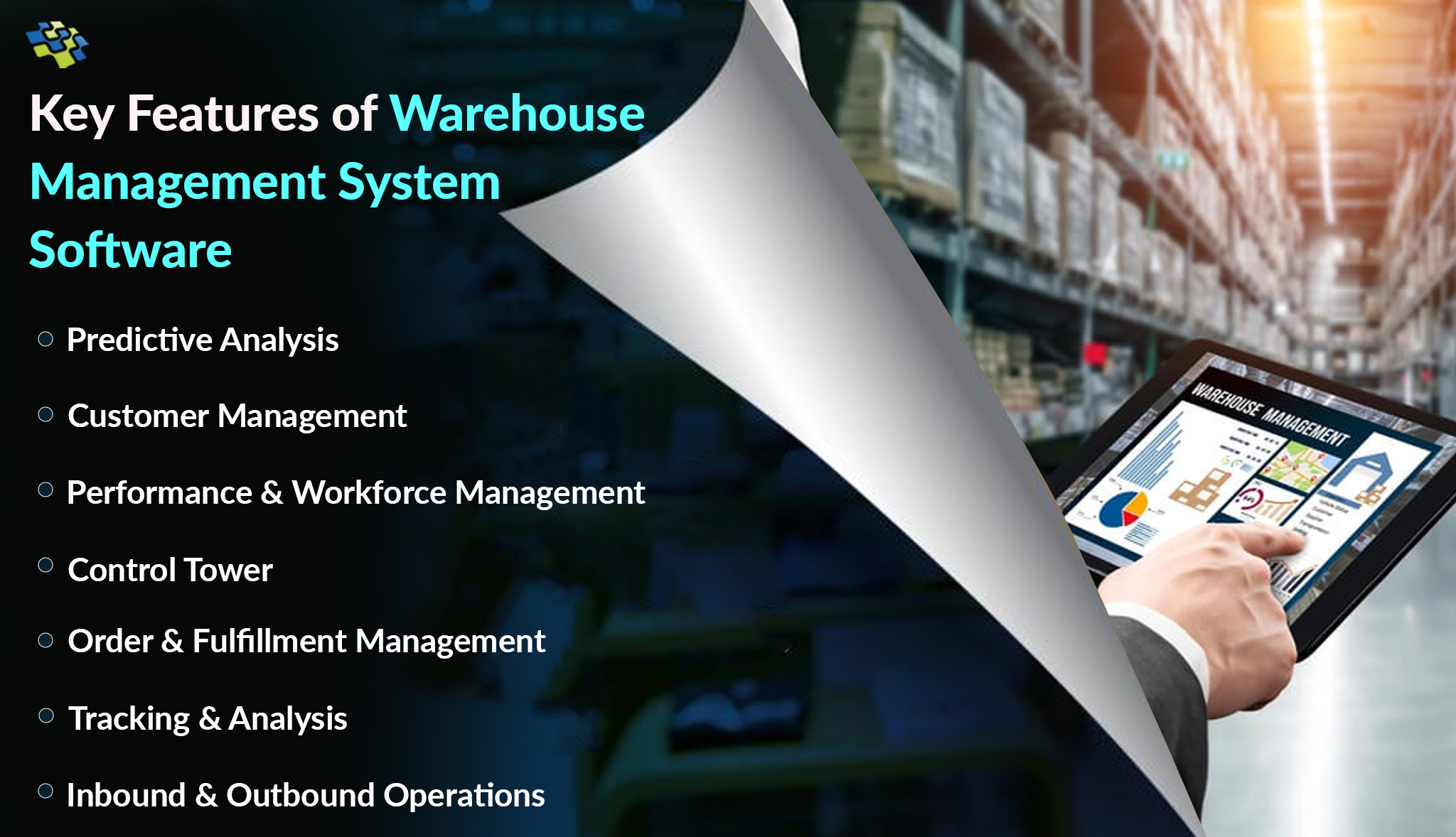
Everything Businesses Need to Know About Warehouse Management Systems
Warehouse and distribution tasks need to be optimized, monitored, and managed by any large, complex logistics or supply chain company. These responsibilities include inventory management, order processing, and dock scheduling.
Stay In the Know
Get Latest updates and industry insights every month.
